Trying to decide what our 2nd blog post should be has been rather challenging. There is so much that I have learned and feel is important, but finding a way to share that effectively is a totally different story. I've decided to start with a broad overview of our nutritional protocol.
John and I tweak our nutrition and fitness according to our current goals and fitness plan. Because of that, providing a strict "do this, don't do that" type of guide doesn't make sense. We are in a constant state of "plan, do, check and adjust". Though this is true, we don't drastically change what we are doing. It is just a slow nutritional evolution.
At a basic level, we eat clean at least 6 days per week. Then, 1 day/week, we allow ourselves to have a cheat meal that does not fit into our daily plan. Typically we will go out and have Mexican or Thai or Sushi rolls. And we don't forgo the margaritas or wine!
John and I tweak our nutrition and fitness according to our current goals and fitness plan. Because of that, providing a strict "do this, don't do that" type of guide doesn't make sense. We are in a constant state of "plan, do, check and adjust". Though this is true, we don't drastically change what we are doing. It is just a slow nutritional evolution.
At a basic level, we eat clean at least 6 days per week. Then, 1 day/week, we allow ourselves to have a cheat meal that does not fit into our daily plan. Typically we will go out and have Mexican or Thai or Sushi rolls. And we don't forgo the margaritas or wine!
What do we consider clean?
The term "clean eating" gets thrown around a lot. To us, this means eating whole foods that are minimally processed from healthy, natural sources. If it is in a box, package or can, it doesn't make the cut. Shopping the perimeter of the grocery store will get you pretty close to staying within that rule.
To be more specific
| A little over a year ago, we decided to do the Paleo 30 day challenge. On the Paleo Diet, you eat animal proteins, fruits, vegetables, nuts and berries. You do not eat any grains, legumes, processed foods, sugars, items that contain gluten (wheat products), or dairy. After the 30 day challenge, we added in select items: non-gluten grains (select oatmeal, quinoa, rice) and dairy (greek yogurt, aged cheese) . By doing this, we were able to see if those foods caused any digestive issues. Currently, we follow more of a "Primal" diet. That is very similar to Paleo, with a few additions (some healthy grains/dairy as mentioned above). |
Organic
| Eating organic is very important. However, I will be honest and say we do not always eat organic. We do make an effort to do so as much as possible though. There are so many chemicals that our bodies are absorbing constantly throughout the day. Anything we/you can do to reduce that will significantly benefit your health. If we do not buy organic, we wash all our fruits/veggies thoroughly with a citrus produce wash. Currently, I use the one pictured at the right. We selected this wash for no other reason than it has good ratings on Amazon. Meats, Eggs, Fish |
Here is where it gets a little tricky. When it comes to animal products, it is most important that you buy free-range/grass-fed/wild caught (less emphasis on organic). Just because it is organic does NOT mean it is free-range/grass-fed.
This is important for multiple reasons:
1) The fatty acid profiles of free-range/grass-fed meats and wild caught fish contain more Omega-3s. As a modern society, we get far too many Omega-6s in our diets, so trying to consume as much Omega-3s to balance that out is important. John and I also take a supplement called "Super Omega-3" on a daily basis. This helps to balance our fatty acid ratio.
This is important for multiple reasons:
1) The fatty acid profiles of free-range/grass-fed meats and wild caught fish contain more Omega-3s. As a modern society, we get far too many Omega-6s in our diets, so trying to consume as much Omega-3s to balance that out is important. John and I also take a supplement called "Super Omega-3" on a daily basis. This helps to balance our fatty acid ratio.
| 2) Commercial meats are raised in crowded, unsanitary, sick environments. Because of this, it is necessary to pump them full of antibiotics. On top of that, they also inject hormones to make them grow fatter, faster. No wonder why our society is getting sick and fatter, faster. Have you ever heard the saying "you are what you eat"? Well, it's true! 3) The commercial meat industry is horrifying and the cause of some of the worst animal cruelty you could ever imagine. |
One of the first food documentaries that we watched was Food Inc.
"the idea would be to have such nutritionally dense food that people actually felt better, had more energy and weren't sick as much."
Quote from "Food Inc"
Quote from "Food Inc"
We buy a 1/4 cow from a local farm and that will last us 8-10 months. We purchase Amish chicken from our local fruit market. We buy free-range eggs from a local farm (Costco's organic/cage-free eggs are our back-up). Trader Joe's has a decent meat selection with these options. And we only buy wild caught fish.
On a side note, the disaster at Fukushima has made us take a closer look at any Pacific Ocean fish we are looking to consume.
On a side note, the disaster at Fukushima has made us take a closer look at any Pacific Ocean fish we are looking to consume.
Genetically Modified Organisms
| We believe that GMOs are extremely dangerous for our health and the health of the entire planet. So, we do our best to avoid eating them. This topic is very complex and there is way too much that is not yet known. However, the short, few studies that have been done have not proved to be very promising. |
"Every single independent study conducted on the impact of genetically modified food, shows that it damages organs, it causes infertility, it causes immune system failure, it causes holes in the GI tract, it causes multiple organ system failure."
Quote from "Seeds of Death"
Quote from "Seeds of Death"
I don't have any proof that GMOs are poison. And, on the flip side, there is no proof that they are safe either. This is something I want certainty with before I feed myself and my loved ones GMO products. This is the reason that I strongly believe GMOs must be labeled. We do have a right to make our own decisions. At this point in time, it is not required for GMO products to be labeled. I really hope that this will change in the near future. Many countries have gone as far as to ban GMO crops all together!
If you don't know what the heck I'm referring to, start learning about them by visiting NonGMOProject.org.
If you don't know what the heck I'm referring to, start learning about them by visiting NonGMOProject.org.
Gluten Free
We do eat foods that are NATURALLY gluten free. Neither of us had noticeable digestive issues from eating gluten prior to eliminating it. But, after eating strict Paleo for 30 days (it takes about 2 full weeks to rid gluten from your system), I decided to try some bread with dinner. I was warned that it would upset my stomach, and though I did trust that I was getting good information from quality sources, I needed to find out for myself. I try to approach everything with a healthy level of skepticism. Well, it wasn't too long after I had about 3 small slices of the pre-dinner bread, that I started to get stomach pains. The gluten also made its presence known in the bathroom the next morning.
| "Gluten Free" can be another confusing topic (not because it's confusing, but because the marketing departments like it that way). If you are purchasing items in a package and it is marketed as "gluten free", most of the time, that is not a health food item and it will not be included in our "clean" category. I will say that we do have gluten about 1/mo. when we are eating out and enjoying a cheat meal. In that case, we take a digestive enzyme. I was hesitant to share this because I don't want you to think you can just take the enzyme to avoid all the negative health issues from gluten. But, you are a big boy/girl and you can make your own decisions. |
If you want to learn more about how gluten affects your health, I suggest starting with the book "Wheat Belly".
Fat-Free/Sugar Free
| First, there is no reason to want to eat any food that is made low fat or fat free. You DO need fat. We actually make sure we eat fat (good fats: coconut oil, EVOO, wild salmon, nuts, avocado, grass-fed meats, etc.) with each meal. You need it for your health and to lose weight. On top of that, if it is labeled "fat-free" there are additives that are put in its place. Additives, such as sugars, artificial sweeteners and/or other chemicals. This also goes for products labeled "sugar-free". In its place will be artificial sweeteners and sugar alcohols. These will show up on nutrition labels as the following terms: Acesulfame potassium, Aspertame, Neotame, Saccharin, Sucralose, Erythritol, Hydrogenated startch hydrolysate, Isomalt, Lactitol, Maltitol, Mannitol, Sorbitol, Xylitol. NO BUENO! |
We avoid artificial sweeteners AND table sugar (sucrose). Sugars from fruits (fructose) are allowed in our diet...but, in moderation.
Now I know what you are thinking, and no, you are not totally screwed!
If you are reading this stuff for the first time, there is no need to freak out. I do want you to take this seriously, but I do not want you to go nuts! If you find that you are not eating as well as you would like, just pick one of the categories to learn more about. Then, if you feel it is as important as we do, change that part of your eating habits. Once you are in the groove with that, move on to the next one.
| John and I did not change our nutrition over night. We started this process about 7 years ago. I remember trying to learn everything and almost having a nervous break down. However, if you are ready to kick it into high gear, I would like to encourage you to take the 30 Day Challenge. It will change your life! |
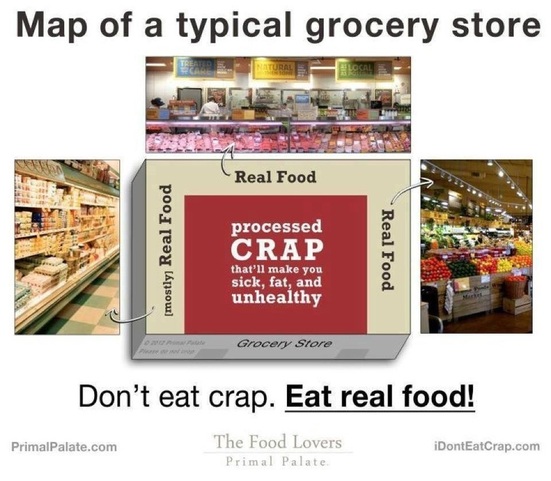
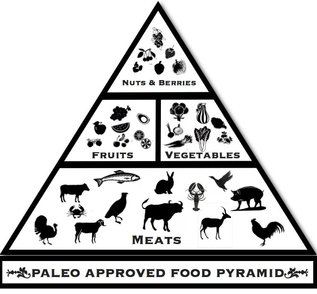


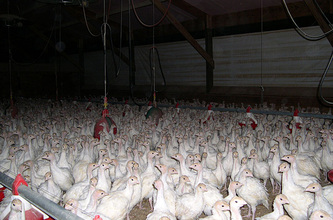
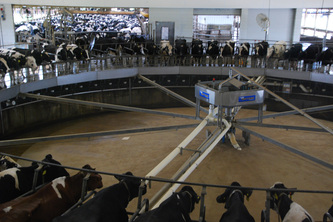
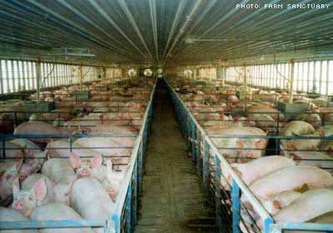
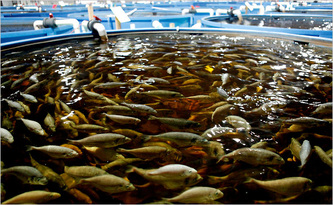
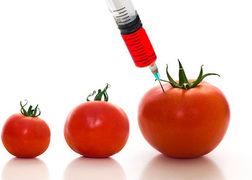




 RSS Feed
RSS Feed
